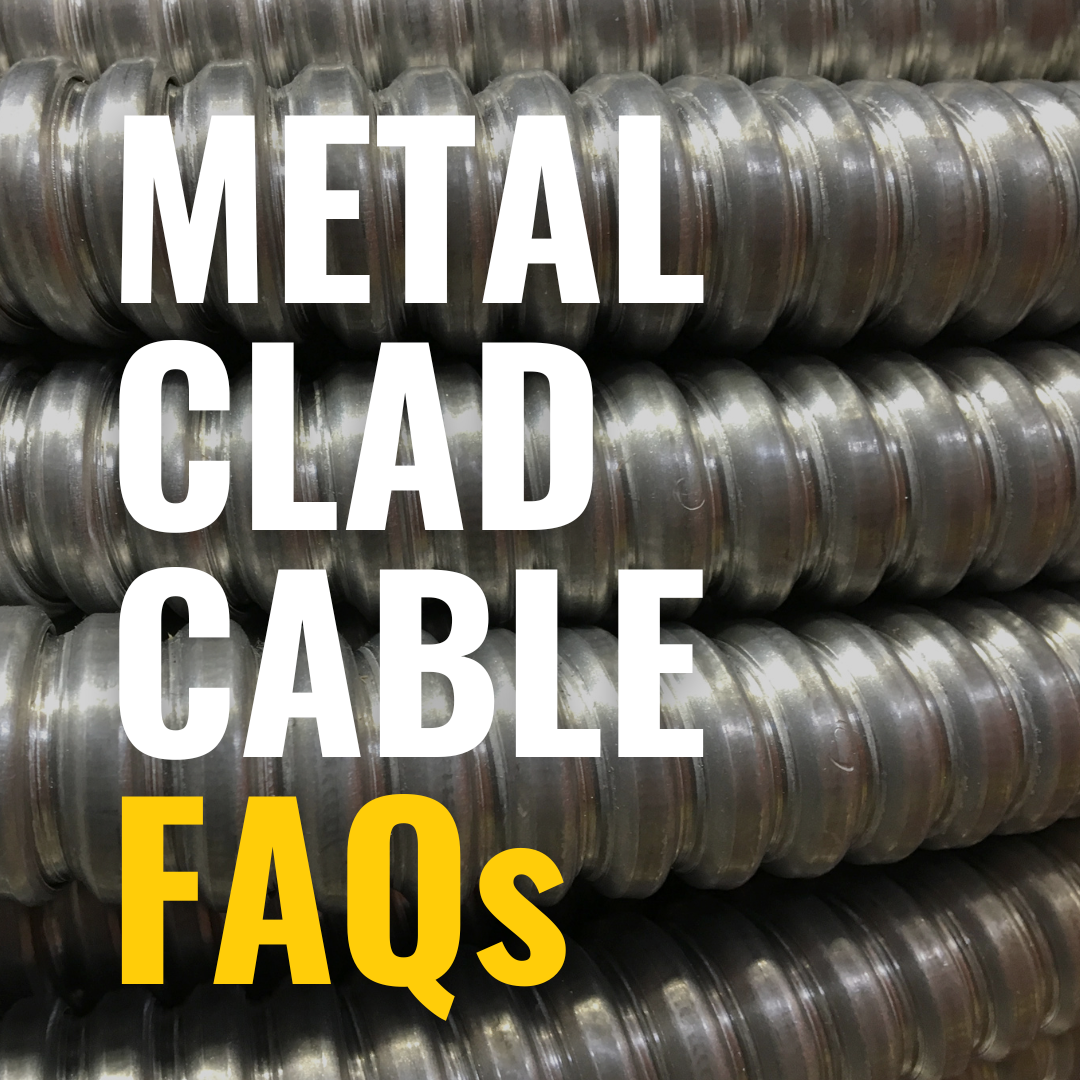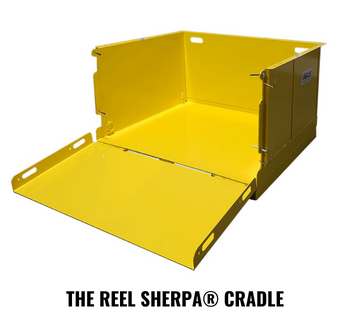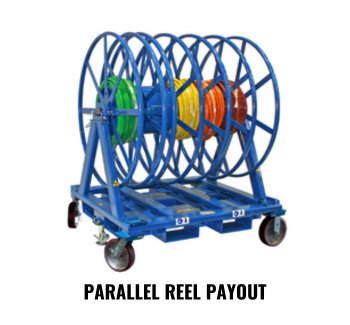We use cookies to make your experience better. To comply with the new e-Privacy directive, we need to ask for your consent to set the cookies. Learn more.
Metal Clad Cable: Frequently Asked Questions
Metal clad cable (MC cable) is any cable with a corrugated metal sheath or interlocking metal tape. The most popular MC cable uses three insulated wires and is available in a variety of gauges, with 10 gauge, 14 gauge, and 16 gauge being the most common options.

In this article, we’ll address several of the most frequently asked questions about metal clad cable. We’ll also explain how the right material handling equipment (MHE) can help contractors use MC cable efficiently — and greatly reduce electrical material loss.
What is metal clad cable used for?
MC cable is ideal for a variety of applications. It’s both flexible and durable — and significantly less expensive than conduit for most installations. With appropriate jacketing, MC cable can be used in wet areas, though installers must comply with local laws and ordinances.
Per the National Electric Code (NEC), metal clad cable cannot be used in locations that subject the cable to corrosive conditions. For example, MC cable can’t be buried directly in concrete.
With that said, MC cable is useful for service, branch, and feeder circuits. It cuts easily, installs easily, and eliminates the need for specialty bending and cutting tools.
What’s the difference between metal clad cable and armored cable?
The terms are sometimes used interchangeably, but armored cable (AC) typically does not have a standard ground wire. Instead, AC secures earth grounding via its metal sheath.
AC cable is also less flexible, which makes it more appropriate for exposed applications that require additional physical protection. Depending on the product, AC cable has a reputation for having more grease on its armor.
Can MC cable be used outdoors?
Yes. The NEC specifically notes that metal clad cable is appropriate for outdoor use, although special considerations may be necessary; once again, MC cable must not be used in locations where corrosion or physical damage are possible.

Can MC cable be used for high-rise buildings?
The NEC permits the use of MC cables on buildings of any height, provided that the cable is properly secured and that other relevant code requirements are followed.
What’s the best way to store, transport, and pay out metal clad cable?
While metal clad cable is more cost effective than conduit, the savings are only realized when contractors are reasonably efficient. Material handling equipment (MHE) and storage equipment must be appropriate for the job — otherwise, working with MC isn’t necessarily a time-saver.
When selecting payout equipment, remember that MC cable is measured by wire gauge, not by the gauge of the sheath. For longer runs, consider options like the BHS Parallel Reel Wagon (PRW).
The PRW features heavy-duty steel construction, a two-way fork pocket design, and free-spinning compartments that provide even payout. It’s customizable and can accommodate up to 5,000 pounds of product — ideal for long-term storage or paralleling.
The BHS Parallel Reel Payout (PRP) provides an even payout with free-spinning, multi-compartment reels, which can be customized as needed to pay out multiple types of cable on a single master unit. Individual hubs can be locked to prevent unwanted payout.
Other solutions to consider:
- The Reel Sherpa™Cradle (RSC-4K) protects heavy-duty wire and cable reels during transport and in storage. Capable of housing reels up to 55" wide and 52" deep, the Reel Sherpa Cradle features a 5,000-pound capacity and two-way fork pockets for easy transport.
- The BHS Wire Coil Cart (WCC) holds bulk loads of cable on wire. Removable steel posts simplify loading, and durable casters allow the unit to move easily when fully loaded. A carpeted base protects exposed ends of cable, and custom builds are available.
- BHS Wire Pull Carts (WPC) are all-steel units with fully adjustable shafts, which hold reels of up to 3,000 pounds. PVC wire guides ensure a smooth pull for payout applications. The WPC is also ideal for secure storage, and thanks to an integrated padlock hasp, strike protector, and steel doors.
Solus Group can help contractors and distributors find efficient, ergonomic options for any type of electrical installation. With virtually unlimited options for customization, we’re ready to discuss your next project.
Call Solus Group at 314-696-0200 to speak with a member of our team.

